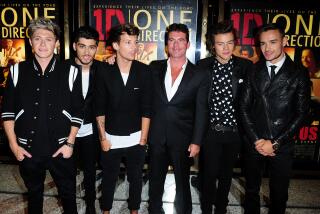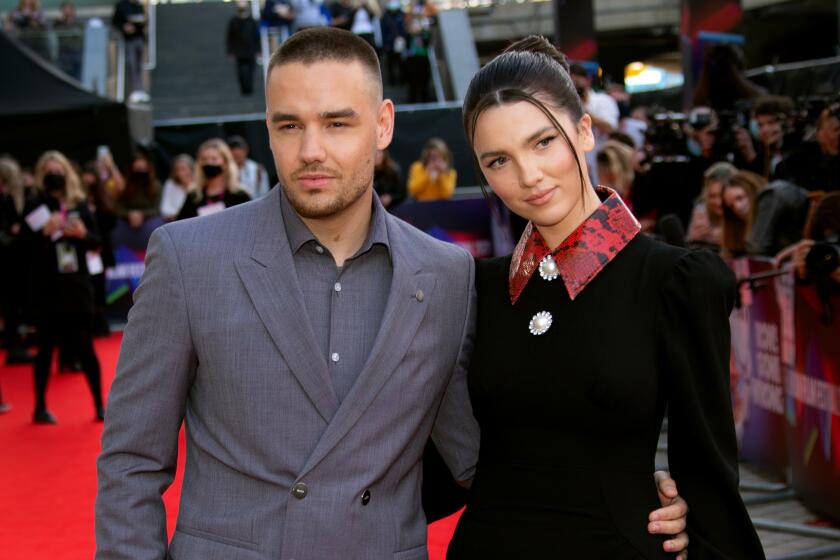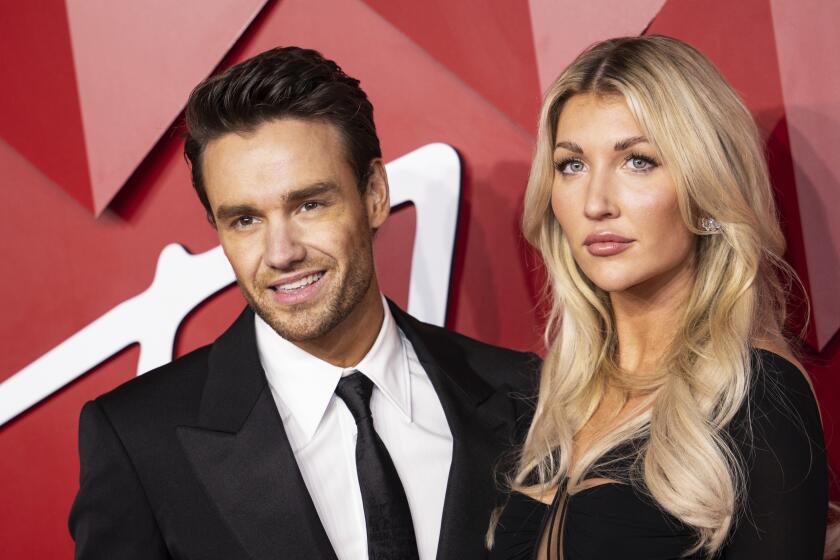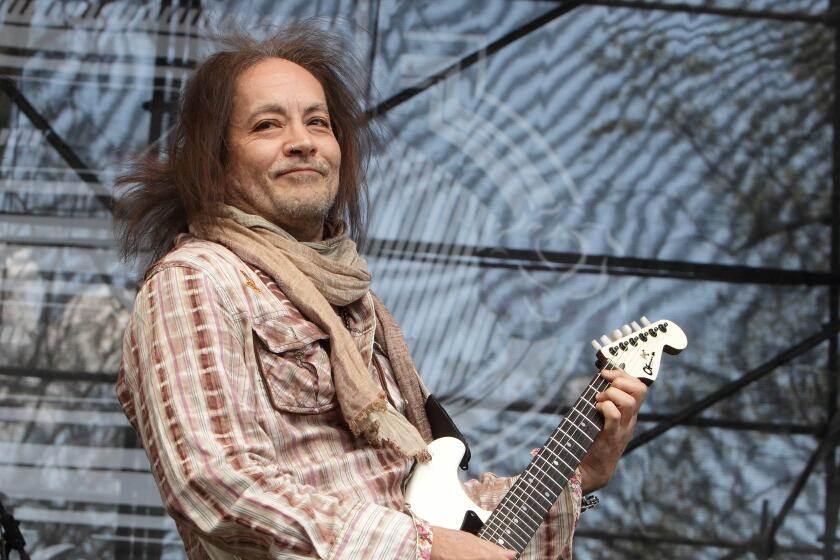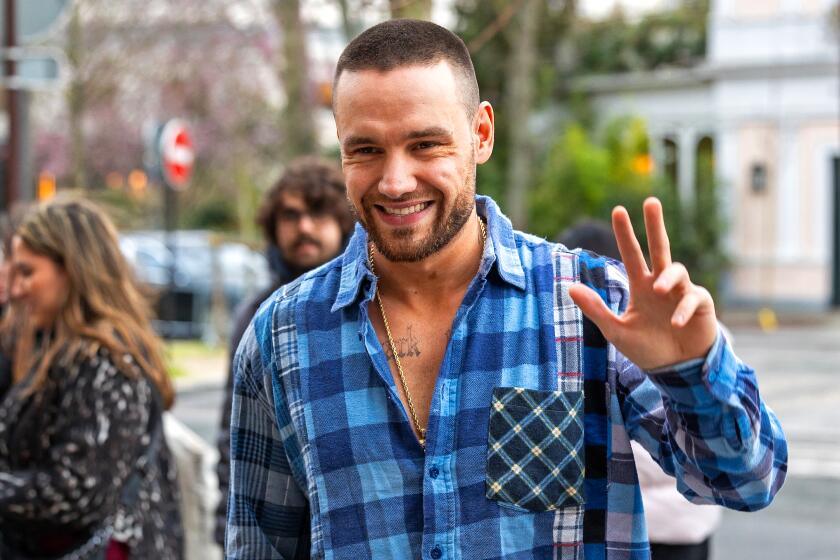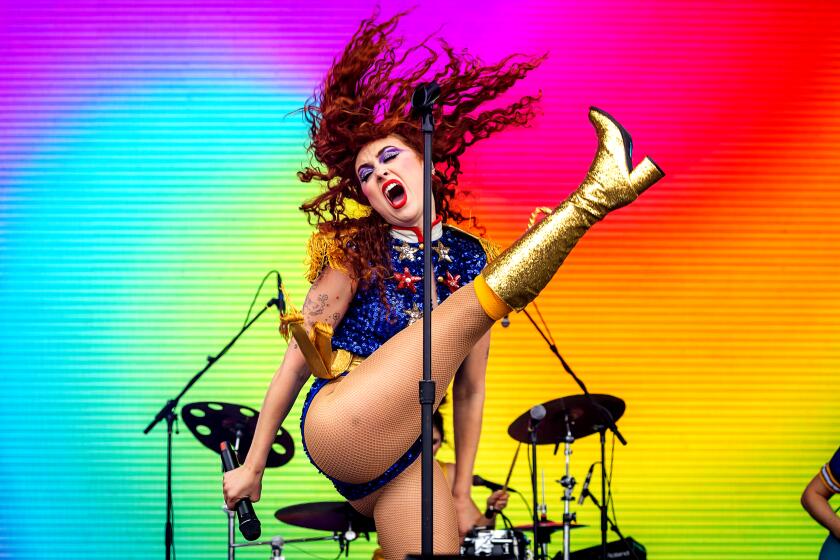POP MUSIC REVIEW : An Erratic Mix at Marley Festival
Is dancehall ready to take over the dominant role in reggae?
The largely electronic style has become such a powerful force in bringing new fans into Jamaican music that the 12th annual Bob Marley Birthday Celebration over the weekend expanded to a third day to feature the sound.
The results were mixed on Friday at the half-filled Long Beach Arena. A scrambled schedule found the show’s announced headliner, Tiger, taking the stage shortly after 9 p.m., and uneven performances contributed to a show that started strongly and gradually unraveled.
Singer Cocoa Tea delivered the evening’s most song-oriented set . . . and ultimately the most satisfying one. Tea is highly reminiscent of reggae sex symbol Gregory Isaacs--his 30-minute performance soared on a song about rude boys and one built on the “Armagideon Time” rhythm.
Tiger immediately revealed a comic stage persona as he played a cultured British accent against the growling rasp of his singing voice, and his moves resembled the old Zap Comics character Mr. Natural trucking along in high-stepping skank style. The animated, 30-minute set proved Tiger could get the most out of dancehall’s energetic techniques on songs such as “Bam Bam,” but it was highly erratic.
Deejay Cutty Ranks’ closing set never found a comfortable groove with the We the People backing band, and near the end Ranks directed some sharp words at bassist Lloyd Parks. Ranks demonstrated dancehall’s link with hip-hop’s aggressive stance, but also revealed its limitations. The sound relied almost exclusively on Parks’ bass and Devon Richardson’s drums.
Dancehall does work well in concentrated bursts. That was apparent during Maxi Priest’s set at Saturday’s concert, when the roughness of guest deejays Tippa Irie and Tiger contrasted effectively with the singer’s velvety smoothness.
While dancehall is the hot new sound, it was Saturday’s “Lovers Rock” bill, featuring the softer side of Jamaican music, that was sold out.
Perennial Jamaican hit-maker Freddie McGregor is a consummate professional whose 40-minute set spanned the spectrum but again lacked that extra something that would enable him to make the leap to international stature.
Maxi Priest’s 90-minute set showed that the British singer has clearly laid claim to Isaacs’ old title as reggae’s romantic heartthrob. He’s a satin-sheet seducer who masterfully works the audience, and his performance was frequently punctuated by women’s screams.
Priest’s seamless musical blend of reggae and soft R&B; is flexible enough to incorporate bits of hip-hop and dancehall into its framework. The slick sound was matched by a performance that stressed traditional show-biz values--it would have fit just as well on a tour opening for Luther Vandross as headlining a reggae festival.
A sizable part of the crowd left after Priest’s set--sadly, they didn’t miss much from Bob Marley’s old backing band the Wailers. Aston Barrett’s bass foundation can still rattle the seats and the Wailers wisely selected some lesser-known Marley tunes such as “Jah Live,” “Natural Mystic” and “Rastaman Vibration.”
But lead guitarist Junior Marvin has amplified Marley’s rock star side without the accompanying sense of the spiritually possessed shaman. Marvin makes the Wailers ham-fisted--on the always uplifting “No Woman No Cry,” he displayed appallingly bad judgment by trying to turn the triumphant “Everything’s going to be all right” section into a foot-stomping, hand-clapping sing-along.
The three-day schedule wasn’t the only new development at this year’s Marley festival. The crafts section expanded to fill an entire exhibition hall at the Convention Center, and Marley historian Roger Steffens presented 2 1/2 hours of videos in a theater. Maxi Priest headlines a one-day version of the festival today at the San Diego Sports Arena.
More to Read
The biggest entertainment stories
Get our big stories about Hollywood, film, television, music, arts, culture and more right in your inbox as soon as they publish.
You may occasionally receive promotional content from the Los Angeles Times.

